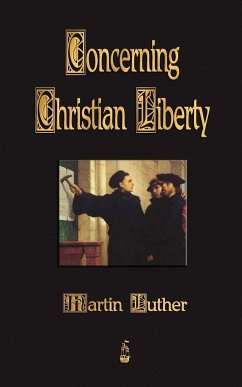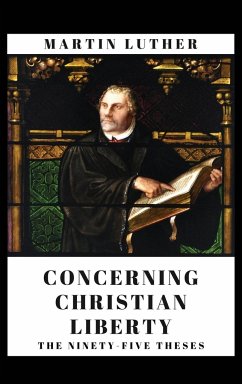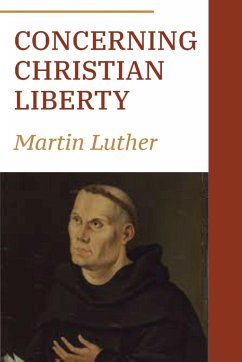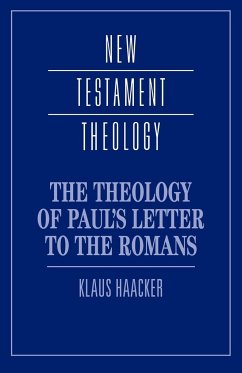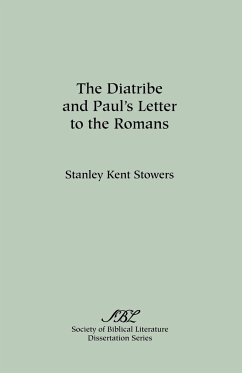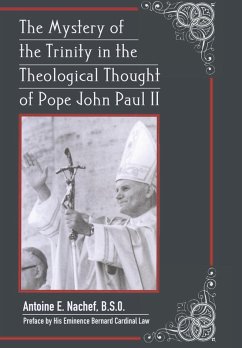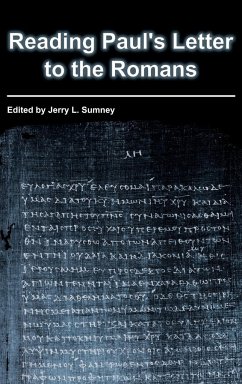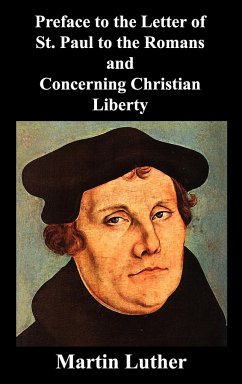
Martin Luther
Gebundenes Buch
Preface to the Letter of St. Paul to the Romans and Concerning Christian Liberty
Versandkostenfrei!
Versandfertig in 1-2 Wochen

PAYBACK Punkte
9 °P sammeln!




Two classic Reformation texts from the pen of Martin Luther: Preface to the Letter of St. Paul to the Romans and Concerning Christian Liberty.
Martin Luther, O.S.A. (10 November 1483[2] - 18 February 1546) was a German professor of theology, composer, priest, Augustinian monk,[3] and a seminal figure in the Protestant Reformation. Luther was ordained to the priesthood in 1507. He came to reject several teachings and practices of the Roman Catholic Church; in particular, he disputed the view on indulgences. Luther proposed an academic discussion of the practice and efficacy of indulgences in his Ninety-five Theses of 1517. His refusal to renounce all of his writings at the demand of Pope Leo X in 1520 and the Holy Roman Emperor Charles V at the Diet of Worms in 1521 resulted in his excommunication by the pope and condemnation as an outlaw by the Holy Roman Emperor. Luther taught that salvation and, consequently, eternal life are not earned by good deeds but are received only as the free gift of God's grace through the believer's faith in Jesus Christ as redeemer from sin. His theology challenged the authority and office of the Pope by teaching that the Bible is the only source of divinely revealed knowledge,[4] and opposed sacerdotalism by considering all baptized Christians to be a holy priesthood.[5] Those who identify with these, and all of Luther's wider teachings, are called Lutherans, though Luther insisted on Christian or Evangelical (German: evangelisch) as the only acceptable names for individuals who professed Christ. His translation of the Bible into the German vernacular (instead of Latin) made it more accessible to the laity, an event that had a tremendous impact on both the church and German culture. It fostered the development of a standard version of the German language, added several principles to the art of translation,[6] and influenced the writing of an English translation, the Tyndale Bible.[7] His hymns influenced the development of singing in Protestant churches.[8] His marriage to Katharina von Bora, a former nun, set a model for the practice of clerical marriage, allowing Protestant clergy to marry.[9] In two of his later works, Luther expressed antagonistic, violent views towards Jews, and called for the burnings of their synagogues and their deaths.[10] His rhetoric was not directed at Jews alone, but also towards Roman Catholics, Anabaptists, and nontrinitarian Christians.[11] Luther died in 1546 with Pope Leo X's excommunication still effective.

Produktdetails
- Verlag: Benediction Classics
- Seitenzahl: 66
- Erscheinungstermin: 24. Oktober 2010
- Englisch
- Abmessung: 235mm x 157mm x 8mm
- Gewicht: 261g
- ISBN-13: 9781849026123
- ISBN-10: 1849026122
- Artikelnr.: 32541095
Herstellerkennzeichnung
Libri GmbH
Europaallee 1
36244 Bad Hersfeld
gpsr@libri.de
Für dieses Produkt wurde noch keine Bewertung abgegeben. Wir würden uns sehr freuen, wenn du die erste Bewertung schreibst!
Eine Bewertung schreiben
Eine Bewertung schreiben
Andere Kunden interessierten sich für




